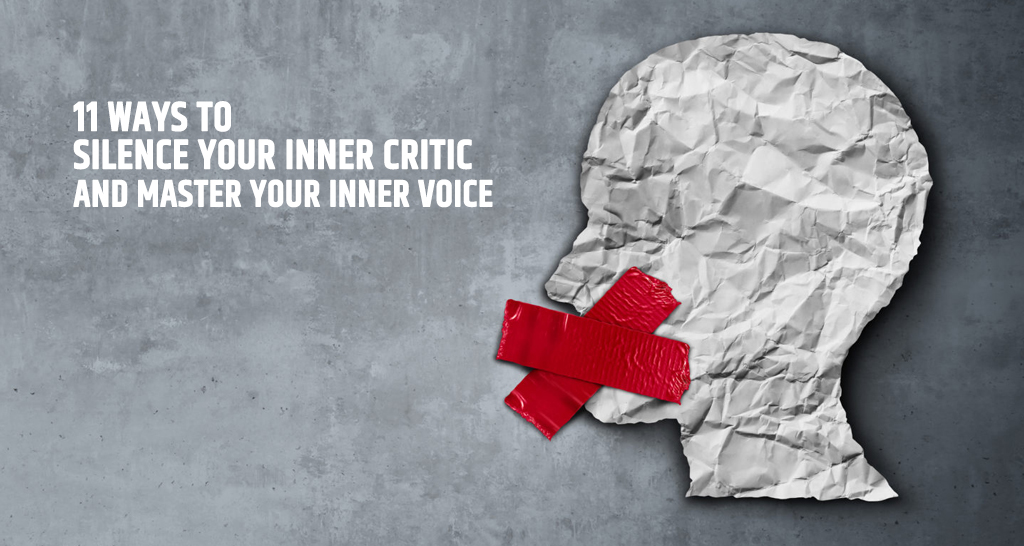We all have an “inner critic,” also known as a “negative voice,” “negative “thoughts,” or “ANTs,” which generally run around and grow quickly in some people’s minds. It’s normal to have an inner critic, and it’s not always a bad thing, especially if you’re an impulsive person who generally takes risks and makes instant judgments.
To decide if we can “fight” the negative thoughts or if we need additional help for safety, our “inner judge” means our internal thoughts help us.
Sadly, with today’s complicated lifestyles, the inner critic has a lot more to say and a lot more things to compare and contrast with other people’s lives, careers, and even vacations. Several studies revealed that several people show themselves happy with their cheerful social media posts to avoid FOMO (Fear of Missing Out!)
These “ANTs,” or false beliefs, are a pattern of harmful ideas about ourselves and other people. They often lead to behaviors that make it difficult for a person to accept certain situations and relationships. These behaviors can also encourage more inward thinking, distrust, self-denial, addictions, and self-criticism. Most importantly, though, they generally keep us from reaching our significant goals.
How to Deal with Our Inner Critic
To deal with the internal critical voice, one needs to raise his level of self-awareness, self-belief, and self-esteem. This is not going to be easy because negative signals swiftly enter our conscious minds from a specific area of the brain. Positive emotions like joy, happiness, pleasure, and emotional regulation are linked to the left side of the brain. Negative emotions, including sadness, rage, being irritable and grumpy, and expressing emotions, are linked to the right side of the brain.
Sadly, some of these negative thoughts have their roots in childhood, when an inadvertent comment like “You’re so bad at studies” from a parent, guardian, teacher, or peer may have made you doubt your skills and feel anxious before a class or exam. As a result, you acted out the belief and received a low mark, which created negative beliefs and occasionally even led to the development of phobias and superstitions. To deal with such a critical inner voice, it is best to seek professional support and take part in cognitive behavioral therapy. Your negative thoughts become overwhelming, and you are going into severe depression.
Our attitudes impact perceptions and feelings, which in turn impact our behavior as well as our thoughts and actions. We act out our attitudes, such as believing we are incapable of cooking and then burning dinner because our opinions of ourselves are based on the things we tell ourselves. When people listen to their inner critic, they act in ways that are consistent with their self-attacks, which might constrain their behavior and reinforce bad results. Furthermore, we frequently overdramatize events that have gone wrong because we fixate on them. , and we start to worry that they might happen again. While Americans tend to be more ready to praise, Brits have a sense of humor and culture that includes self-deprecation, which only serves to reinforce negative attitudes.
Negative head chatter before a crucial meeting, presentation, or interview can cause a “bad attitude,” or a downward spiral, with confidence levels dropping. This, in turn, negatively affects our body language and causes “body language leakage,” which can include blushing, sweaty palms, trembling hands, or even losing one’s voice entirely. The “Inner Voice” that says, “You always make a mess of things,” undermines efforts to improve and favorably reinforces the message.
When you feel confused or worried, use this effective 12-point plan to efficiently deal with your inner critic:
- Think about the different circumstances and individuals who might be influencing your negative thoughts, then create a SMART action plan to address each one.
- Create a list of all the characteristics, passions, and enjoyable activities that define you; go back on the list when things get tough.
- Put your negative ideas down on paper and refute them with an accurate or more grounded assessment of who you are. “Think it or not; it doesn’t have to be true.”
- Consistently ask yourself, “What matters, and what is important?” Most likely, it’s not what your envious brother, coworker, or neighbor believes!
- Recall that you are more likely to criticize yourself than a person!
- Consider the following: “What would your coach or best friend say or do?”
- Keep working to achieve perfection and accept your flaws.
- Replace your internal negative thoughts with affirmations like, “I used to be terrible at giving presentations, but after taking this course, I’ve gotten better at them.”
- Compile a list of all the compliments and suggestions you have gotten from friends, clients, and superiors.
- Eliminate the following terms from your vocabulary: “can’t,” “don’t,” “won’t,” “shouldn’t,” and “couldn’t.”
- List all of your accomplishments, both professional and personal, and consult them frequently.
We can improve how we present, lead, manage, negotiate, and handle important decisions, challenging people, and situations while also lowering stress levels if we breathe more slowly, take our time, and give ourselves positive messages. After all, we are 100% responsible for our attitude, behavior, reactions, and choices.
How to Find Solitude in a Highly Connected World
If you are living and running your own business as an owner, you might have to struggle through a lot of things. But when you connect with your inner world and this nature away from the fake social media world, you have a lot to be happy about. It will be easier for you than for the average solopreneur in certain aspects. Not only are you in the heart of nature, but you also don’t have a smartphone beeping away at you all the time, urging you to put your thoughts aside and go through his social media feeds.
It’s easy to give in to the allure of the digital dopamine high, but the benefits of spending time alone can only be discovered by refusing. You might be amazed by the creativity and ingenuity that bloom in that area when you close your door and put your phone on “do not disturb” for a portion of each day.
Every entrepreneur and corporate professional should arrange a solo time, setting aside a specific amount of time each day to focus on in-depth work and decompress. These peaceful times will remind you of your childhood and youth. It might be difficult to admit, but when there were no outside distractions, our minds occupied the quiet by barraging us with “what ifs.”
Successful entrepreneurs believe that their best ideas flourish during the moments when they force themselves to push through the agony. Their important part of our success is attributed to those priceless moments of silence when they could just be without interruption.
It is a fact that in this modern world, it is difficult to be completely alone, free from the companionship of electronic gadgets. Learning to manage your inner thoughts is far more difficult than grabbing your phone and mindlessly scrolling. But there are no limits to what you can do once you learn to control that inner voice and train it to work for you instead of against you.








